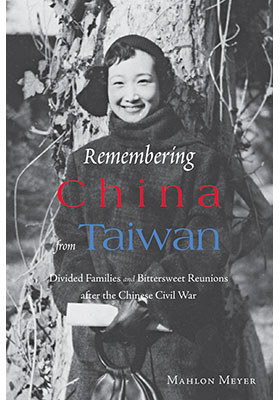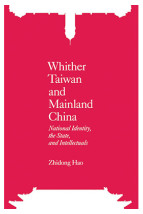Remembering China from Taiwan
Divided Families and Bittersweet Reunions after the Chinese Civil War
(咫尺天涯:中國內戰後的家庭離散與團聚)
ISBN : 978-988-8083-86-2
February 2012
252 pages, 6″ x 9″, 27 b&w illus.; 6 tables
- HK$250.00
Ebooks
Also Available on
At the close of the Chinese Civil War, two million Chinese fled from the victorious communist army under Mao Zedong. They fled across a long ocean strait to the island of Taiwan where they waited for almost fifty years, dreaming of their lost homes and relatives left behind, aging and living out their lives as defeated, cursed people. But when both Taiwan and China began to become wealthy, the two sides allowed cautious exchanges. The split families met up again. There was hope, joy, sorrow, and disasters. Yet the losers of the Chinese civil war, who had endured for so long, now found a new reason to persevere: they no longer hated their enemies. In fact, they now wanted to join them.
This book draws on oral histories with Kuomintang loyalists in Taiwan to show their painful struggles with family, friends, and relatives back in the mainland, their hopes and disappointments, the effects on a changing society and political situation in Taiwan, and the dynamics of cross-strait relations shared by millions on both sides of the Taiwan strait.
“Civil wars have casualties long after they are over. The movement of several million mainland Chinese to Taiwan in 1949 changed that island’s history and guaranteed its autonomy. It also produced multiple traumas, for locals and mainlanders alike. This book tells the stories of a nation and families divided across the Taiwan Strait; of generations set apart by hot and cold wars; and of how Chinese mainlanders could still feel abroad in their new Taiwan homes sixty years after migration. Mahlon Meyer’s eloquent essay on displacement and memory in modern Taiwan adds an original perspective to our understanding of the fractured cultural world of ‘greater China.’” —William C. Kirby, Harvard University
“All Chinese of a certain generation—those in mainland China, KMT refugees, and even native Taiwanese—were ravaged and left desolate by war and political upheaval. Meyer’s eloquent and starkly drawn depictions of how students were fined for speaking Taiwanese, how Chiang Kai-shek asked for documents to be written in an older calligraphic style, and how a man has to decide where he is going to bury his family and whether he should buy land in Taiwan for a family ancestral hall—all of this deepens the reader’s understanding of the times. The memories of loss, dislocation, and upheaval are deeply felt and sensitively described. These stories of mainland refugees reimagining their shattered identities highlight a change in identity that is going on in all generations of Chinese people, in Taiwan, in China and in the Chinese diaspora.” —Thomas Reilly, Pepperdine University






